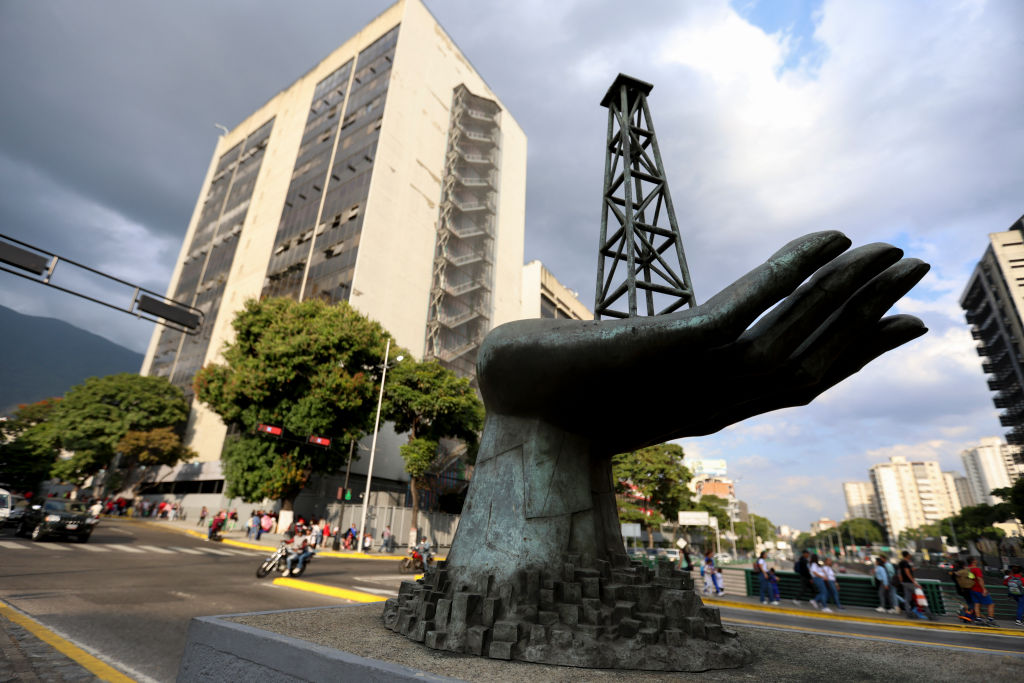Interview with Bolivian Minister of Hydrocarbons
Interview with Bolivian Minister of Hydrocarbons
AS/COA Director of Policy Jason Marczak talked with Bolivian Minister of Hydrocarbons Carlos Villegas Quiroga about the country's oil and gas sectors. Villegas encouraged investment in Bolivia's state company and discussed prospects for energy negotiations with Chile and Brazil.
Bolivian Minister of Hydrocarbons Carlos Villegas Quiroga sits down with the Americas Society and Council of the Americas after a program at the New York headquarters. Minister Villegas encourages companies “to design exploration programs and projects together with the Bolivian state company.” He also assures “legal security” for companies investing in Bolivia. Looking to the future, he speculates about the conditions necessary for beginning energy talks with Chile and notes that Bolivia will have a clear idea of Petrobras investments by mid-December.
AS/COA: Minister Villegas, thank you for your time. You are visiting the United States to talk about investment opportunities in Bolivia’s gas and petroleum sectors, among other things. What message would you like to share with current and potential investors?
VILLEGAS: Thank you for the interview. First and foremost, I would like to address current and potential investors to point out that, during these 20 months of the Morales administration, there has been an important change in the rules that govern the relationship between private companies and the state in the hydrocarbon sector. This shift has created an environment favorable to investors. The companies that currently operate in Bolivia, as well as those that may potentially do so, have assurances and legal security. The existing conditions and legal framework make it possible for the state and companies to have a relationship that allows for businesses to make investments, and to identify exploration, development, and industrialization projects as well as other initiatives that are currently being designed for future implementation. In summary, companies in Bolivia presently have legal security. It is therefore important that they make decisions, particularly those firms that aren’t currently looking to invest in Bolivia. We offer favorable conditions for exploration, and would like to build alliances between companies and Yacimientos Petrolíferos Fiscales Bolivanos to begin exploration projects.
AS/COA: Thank you. As you have said recently, Bolivia needs to double current natural gas production levels to meet domestic demand as well as to honor its export obligations to Brazil and Argentina. You just spoke about the general plans that Bolivia is developing and will implement in the future. What types of specific projects are being designed?
VILLEGAS: There are various projects. First, exploration and development is a fundamental project. A central policy of this government is to encourage private companies to design exploration programs and projects together with the Bolivian state company in areas reserved for Yacimientos Petrolíferos Fiscales Bolivanos. Reserved areas are those that offer Bolivia’s best hydrocarbon potential, according to data and studies conducted. Therefore, the probability of achieving positive results during exploration is quite high. On the other hand, it is also important to note that we have other projects related to commitments with Argentina to produce and generate a natural gas transport system both in Argentina and in Bolivia. In the case of Argentina, this commitment is assumed by the Argentine government, and in Bolivia, we have 100 kilometers that must be constructed apart from a liquid separation plant. This will allow us to take meaningful steps not only for liquid separation but for industrialization as a whole.
AS/COA: Bolivia has the most extensive gas pipelines in the region. Apart from the gas pipeline in northeastern Argentina, there is a gas pipeline with São Paulo, the longest in South America. Do plans exist for a gas pipeline with Chile?
VILLEGAS: Well, for the moment we do not have anything concrete with Chile. There are no negotiations surrounding energy issues. The government and President Morales together with President Bachelet decided on a 13-point agenda for negotiations led by the Bolivian and Chilean teams. Energy is not mentioned among those points. But as the negotiations that are on course continue, and when an agreement is reached that the governments and presidents can announce, there, yes, we would have a space and an avenue to talk with Chile about the energy issue. But, for now, there is nothing.
AS/COA: Turning to Brazil, Petrobras in an important investor in Bolivia. According to your previous indications, it is one of the eleven firms that have committed to investing approximately $590 million in the gas and oil sectors this year. But, at the same, Petrobras has indicated that it would invest only sufficient money to maintain current production. How do you see the relationship with Petrobras and future opportunities and challenges?
VILLEGAS: For Bolivia, Petrobras is a company with whom we are working and would like to keep working in the future. It is also a company in a country that is very important to President Morales. And by the preliminary conversations that we have had, and the meetings that we are still going to have with Petrobras from next week until December, we will have an exact idea of the total investment from Petrobrás. But they have expressed [interest in] continuing to invest in San Antonio, in San Alberto, and, a fact that is important, in beginning exploration in a new location. It is going to explore in a field in Chupizaca called Ingre. This is very important because when a company takes the decision to begin significant exploration, it signals that it does not just want to maintain production levels, but that it wants greater production. This is a good piece of information from Petrobras. But I repeat [that] we are talking. And that by mid-December we will have an exact idea about the volume of investment and the projects that Petrobras will undertake next year.








